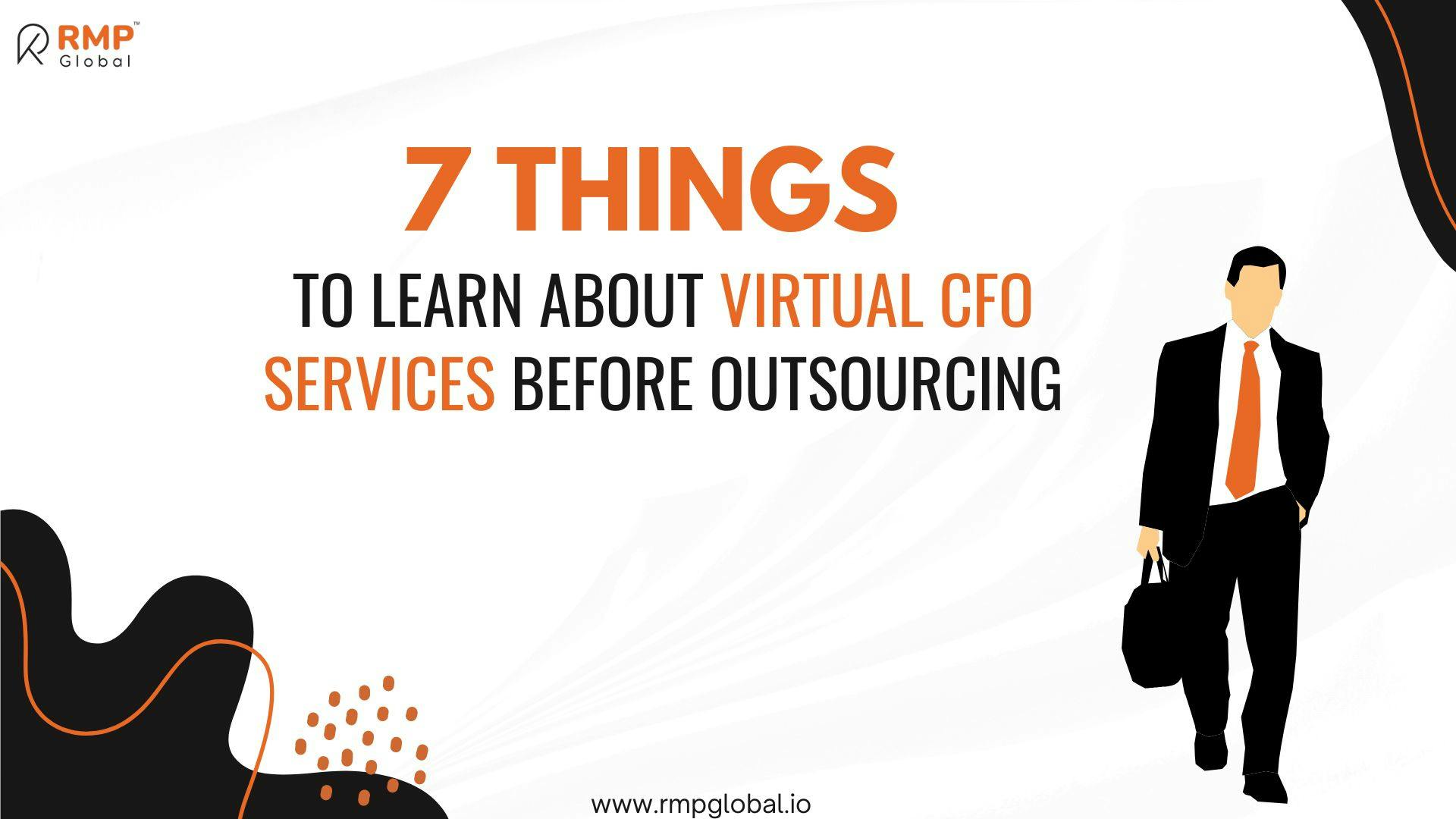
Share
In today's rapidly evolving business landscape, outsourcing financial management has become a strategic move for many companies. Virtual CFO services offer a cost-effective solution to managing finances without the need for an in-house CFO. However, before you make the leap, there are some crucial aspects you should understand. Here's a comprehensive guide on the seven key things to learn about Virtual CFO services before outsourcing.
1. Understanding the Role of a Virtual CFO
A Virtual CFO (Chief Financial Officer) provides the same financial expertise and strategic advice as a traditional CFO but works remotely. They manage financial planning, risk management, record-keeping, and financial reporting, tailored to your business needs. Before outsourcing, it's essential to clearly define what role the Virtual CFO will play in your organization.
2. Assessing the Scope of Services
Virtual CFOs offer a broad range of services including budgeting, forecasting, financial analysis, and cash flow management. Some may specialize in certain industries or financial areas. Before outsourcing, determine what specific services your business requires and ensure that the provider has expertise in those areas.
3. Evaluating the Experience and Expertise
The experience of a Virtual CFO is crucial to the success of their role in your business. Look for someone with a proven track record in your industry, understanding your specific challenges and opportunities. A Virtual CFO with experience in similar-sized companies can provide insights that are directly applicable to your business.
4. Understanding Cost Structures
One of the primary benefits of outsourcing to a Virtual CFO is cost efficiency. However, it’s important to understand the cost structures involved. Some CFOs charge hourly rates, while others may offer monthly packages. Make sure you’re clear on what’s included in their fee and how it compares to the value they provide.
5. Communication and Reporting Standards
Effective communication is key when working with a Virtual CFO. Establishing clear reporting standards and communication channels is essential for smooth collaboration. Before outsourcing, discuss how often you’ll receive financial reports, the format of these reports, and the communication tools that will be used.
6. Integration with Existing Teams
A Virtual CFO should seamlessly integrate with your existing team, providing strategic guidance while respecting the company culture. Before outsourcing, consider how the Virtual CFO will work with your finance team, executives, and other departments to ensure alignment with your business goals.
7. Security and Confidentiality
Financial data is sensitive, and protecting this information should be a top priority. Before outsourcing to a Virtual CFO, inquire about the security measures they have in place. Ensure they adhere to industry best practices for data protection and confidentiality, so your business information remains secure.
Conclusion
Outsourcing to a Virtual CFO can be a game-changer for your business, offering expert financial guidance without the overhead of a full-time executive. However, understanding these seven key aspects before making the decision will help you choose the right Virtual CFO service that aligns with your business needs.
This article is only a knowledge-sharing initiative and is based on the Relevant Provisions as applicable and as per the information existing at the time of the preparation. In no event, RMP Global or the Author or any other persons be liable for any direct and indirect result from this Article or any inadvertent omission of the provisions, update, etc if any.
